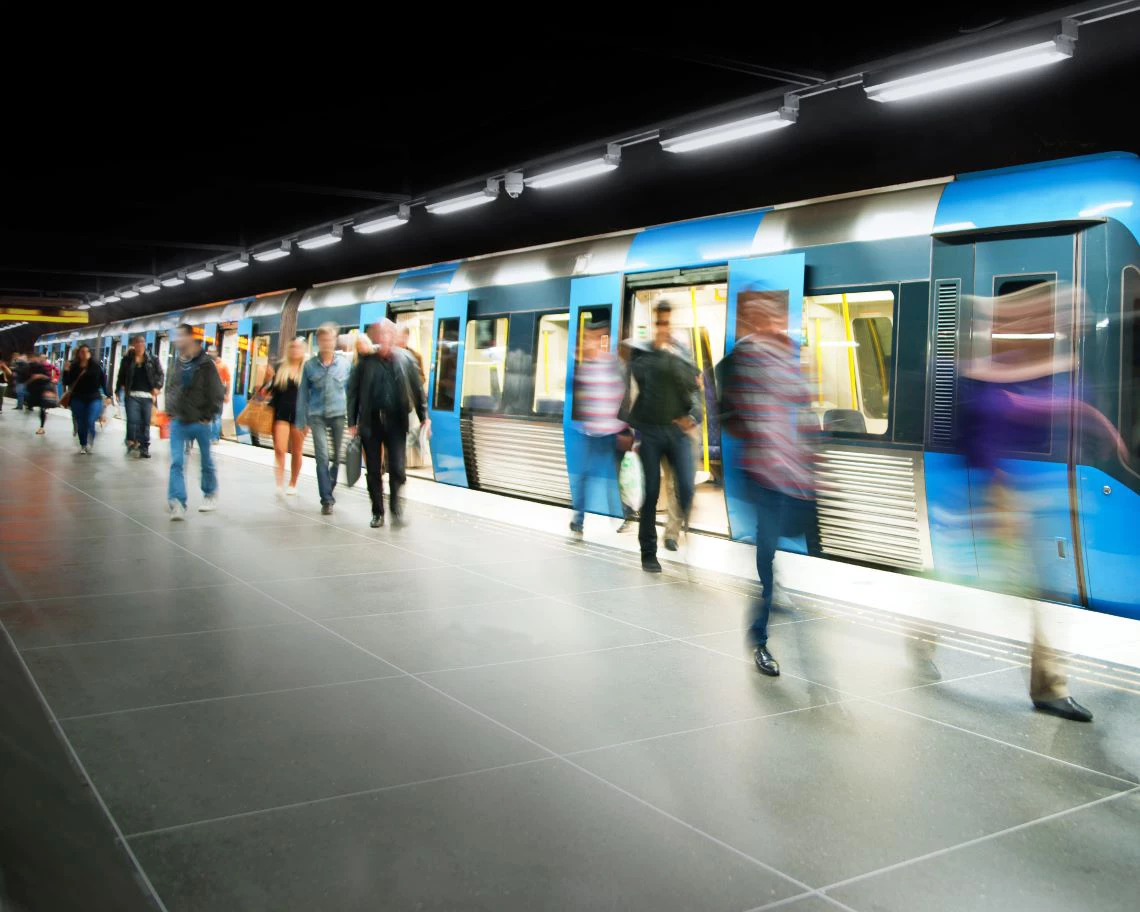 rapid transit platform
rapid transit platform
Rapid movement of people and goods has always defined thriving cities. But the COVID-19 pandemic slowed much of that movement, and the way forward is uncertain. One thing is clear, efforts to restore vitality to urban areas need to be tempered with a profound willingness to rebuild in a less carbon-intensive manner.
As municipal leaders tackle the challenges of leading their cities out of crisis mode, the transportation sector will play a key role in a greener, resilient and inclusive recovery. Smart transportation planning can create jobs and lay the groundwork for sustainable urban growth.
An IFC analysis found that cities that prioritize green transportation stand to gain from an investment opportunity of as much as $2.7 trillion. It is estimated that the green transportation sector will create some 53 million direct jobs across emerging market countries by 2030. As urbanization accelerates around the world, it is more important than ever that transit systems reduce their carbon-dependency . Well-planned urban transit is a critical component of the world-wide effort to stem climate change.
It is estimated that the green transportation sector will create some 53 million direct jobs across emerging market countries by 2030.
The COVID-19 crisis presented significant challenges to municipal transit operators. As ridership rates fell between 50 percent and 90 percent, mass transit operators were forced to bear substantial costs for salaries and system maintenance. There is little doubt that a strong demand for mass transit will return. Mass transit is the most affordable option for the vast majority of the world’s urban residents, and it is essential that all transit services are safe, reliable and eco-friendly. Given the essential role public transport plays in emerging market economies, governmental support for both public and private operators is crucial to sustain operations in the short term and improve service levels in the long term.
The World Bank has published steps for sustainable financing strategies, including investment reviews and cash injections. The challenge for rapidly growing cities in lower-income countries is particularly severe, as scaling public transit requires keeping prices low. Subsidies are usually required to improve services and invest in technology, and finding the resources to subsidies can be difficult.
One step which urban leaders can take now is to improve access to electric vehicles (EVs). For example, IFC supported Ukraine’s Galnaftogaz (GNG), the country’s leading retail distributor of transportation fuels, to help promote electric passenger vehicles uptake by investing in fast-charging stations. The project will enable the company to avoid annual greenhouse gas emissions of around 4,990 tons of carbon dioxide. Increasing the proportion of EVs on the road makes urban air cleaner for everyone. (Transport pollution is a major contributor to respiratory illness in cities around the world).
Municipalities can work with the private sector to invest in EV charging stations and other EV infrastructure. With appropriate zoning modifications, EV infrastructure can be built near bus and rail hubs, where it can serve mass transit and commercial delivery needs.
New bus rapid transit systems, also called BRTs, are another affordable and flexible way to improve urban transit while also stimulating the local economy. Carefully planned stations, digital ticketing and platform-level boarding make for easy and efficient loading and unloading of people and goods.
It is crucial to ensure that public transit remains a reliable and practical option for everyone, including those who use mobility devices and push strollers. BRTs typically replace old buses with new fleets that may feature intelligent transportation systems, which allows system operators to improve rider satisfaction and reduce traffic congestion. Dedicated smartphone apps allow riders to plan their journeys with precision. System operators can use this data to optimize bus schedules and operations for efficiency.
The silver lining of the COVID-19 crisis is a once-in-a-lifetime opportunity to rethink the world’s cities.
In 2021, IFC helped the city of Zaporizhzhia in Ukraine to develop and introduce a smart city platform, as well as modernize and upgrade its public transport system. IFC's EUR35 million investment will help the municipality rehabilitate up to 2 kilometers of roads on one of the city’s center streets, purchase modern battery-electric trolleybuses and electric buses, and upgrade the electric transport infrastructure.
The project will help reduce traffic congestion and pollution in urban areas, optimize traffic management, and provide better digital services to ensure the quality and sustainability of communal services.
Although mass transit usage declined during the pandemic, increased reliance on e-commerce resulted in a massive surge of urban delivery traffic. Last-mile delivery companies scrambled to meet an increase in demand without sacrificing their own efficiency. In the process, many of these companies invested in smart tracking systems and upgraded their intelligent routing and fleet management software.
The surge in demand for clean, cost-effective last-mile delivery solutions has created an unprecedented opportunity for cities to forge alliances with the private sector. Cities can lead the way by designing clean transit solutions which work for businesses and local residents . In emerging markets, two and three-wheeled EV logistics, which are already becoming cost competitive with fossil fuel options, can be encouraged.
Journeys may change, but the importance of rapid movement within cities will remain. Advances in data management software and intelligent traffic systems allow municipalities to control both traffic and pollution more effectively than ever before.
IFC can help plan and finance transit projects as cities plan their emergence from unprecedented crisis. We have the tools to ensure that recovery plans continue the global effort to reduce climate change.
The silver lining of the COVID-19 crisis is a once-in-a-lifetime opportunity to rethink the world’s cities. New technologies enable cities to plan and rebuild greener and smarter than ever before. Deploying transport solutions driven by smart technologies and innovative tools will be key to build healthy, thriving post-pandemic cities where people and goods move with ease.
This blog is the third in a series of blogs on how city officials can leverage technological innovations to build sustainable, smart cities. Visit the IFC infrastructure website and follow the IFC Infrastructure LinkedIn page to keep up with the latest trends and news in the smart cities space.



Join the Conversation